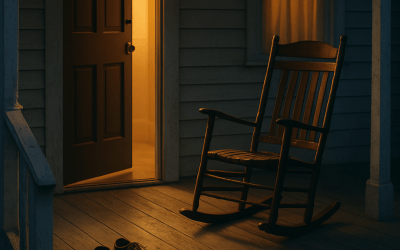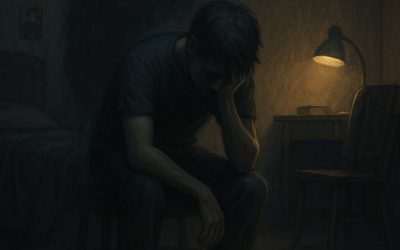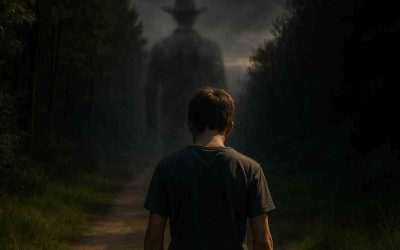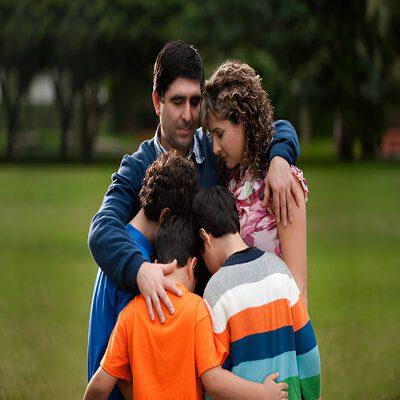The Unfolding of Grief
When Emily lost her mother, she was unprepared for the emotional storm that followed. At first, she couldn’t believe it—her mind refused to accept the reality of her mother’s absence. Then came the anger, an overwhelming frustration at the world, at doctors, at fate itself. She found herself bargaining in quiet moments: If only I had been there sooner, maybe she would still be alive. But nothing changed. Depression soon settled in, making even the simplest tasks feel impossible. And yet, over time, she found herself learning to live with the loss. Acceptance did not erase the pain, but it allowed her to carry it differently.
Emily’s journey through grief reflects what psychiatrist Elisabeth Kübler-Ross outlined in 1969—the five stages of grief: denial, anger, bargaining, depression, and acceptance. This model, though widely known, is not a rigid structure. Grief does not follow a strict timeline, and people may revisit certain stages multiple times. Yet understanding these stages can offer clarity, helping individuals recognize that their emotions are part of a natural and deeply human process.
“I thought moving through denial, anger, bargaining, depression, and acceptance would be neat and orderly—but my grief had its own rhythm. Learning I wasn’t ‘failing’ by looping back to anger was a huge relief.”
When Grief Takes Many Forms

Denial: The Initial Shock
Denial is a protective mechanism, the mind’s way of buffering the immediate pain of loss. It allows individuals to slowly process the reality of what has happened, preventing emotional overload.
Common Reactions in the Denial Stage:
“This can’t be happening.”
“There must be a mistake.”
Feeling emotionally numb or detached from reality.
Continuing with daily routines as if nothing has changed.
Denial often serves an essential purpose—giving the mind time to adjust before facing the full weight of grief.
Continued Signs That Grief Can Weigh Heavily
Anger: The Search for Someone to Blame
Once denial begins to fade, grief frequently manifests as anger. This stage is fueled by frustration, helplessness, and the deep unfairness of loss.
Anger in Grief Often Sounds Like:
“Why did this happen to me?”
“Who is responsible for this?”
Feeling easily irritated or prone to sudden outbursts.
Experiencing resentment toward others who are not grieving.
Although anger can be distressing, acknowledging and expressing it can be an important step toward healing.
Depression: The Weight of the Loss
Depression is often the longest and most challenging stage of grief. Reality sets in, and individuals may experience profound sadness, emptiness, or withdrawal.
Signs of Depression in Grief:
Persistent feelings of sadness or hopelessness.
Loss of interest in activities once enjoyed.
Fatigue, insomnia, or excessive sleeping.
Withdrawing from social interactions.
If this deep sadness interferes with daily functioning for a prolonged period or includes suicidal thoughts, professional support is essential.
“Grief may burden you, but it also underscores the depth of the love that once brightened your world.” — Ariella M.
Bargaining: Attempting to Regain Control
Bargaining is the stage where people try to negotiate with fate, God, or themselves, seeking to undo or soften the loss.
Common Bargaining Thoughts:
“If I had only done something differently, maybe this wouldn’t have happened.”
“If I promise to be a better person, maybe the pain will go away.”
Turning to prayer or spiritual negotiations for comfort.
Reliving the past and imagining alternative scenarios.
Bargaining is the mind’s way of seeking control in a situation that feels uncontrollable, offering a temporary sense of hope before deeper grief sets in.
Acceptance: Integrating the Loss
Acceptance does not mean “moving on” or forgetting; it’s a shift in perspective—acknowledging that life continues despite the absence.
Acceptance Often Involves:
Recognizing that while grief remains, it no longer dominates daily life.
Finding new purpose or meaning despite the loss.
Feeling moments of peace alongside the sadness.
Honoring the lost loved one while embracing the future.
Acceptance is not an end point but a point where pain coexists with a redefined sense of normal.
The Non-Linear Nature of Grief
Though these five stages provide a lens for understanding grief, remember:
🔹 Grief Isn’t a Checklist: People can move through the stages in different orders, skip some, or revisit others.
🔹 Factors at Play:
✅ The nature of the loss (sudden vs. anticipated)
✅ Personal coping mechanisms
✅ Cultural or religious beliefs
✅ The presence of a support system
Grief is a unique journey, deeply influenced by individual circumstances and inner resilience.
Criticism and Evolution of the Model
Kübler-Ross’s framework was originally created for the terminally ill facing their own mortality, not specifically for bereaved individuals. Modern grief research suggests:
✔️ The Dual Process Model: People oscillate between focusing on their loss and engaging in daily life.
✔️ The Six R’s of Mourning (Therese Rando): Recognizing, reacting, reminiscing, relinquishing, readjusting, and reinvesting.
✔️ Continuing Bonds Theory: Emphasizes maintaining a connection with loved ones who have passed, rather than “letting go.”
While the five stages are widely taught, it’s key to remember they’re a framework—not a prescriptive path.
Things To Try This Week!
- Reflect on a Stage:
Pick one stage (denial, anger, bargaining, depression, acceptance) and write down or voice record how you’ve experienced it, even if fleeting.
- Create a Ritual of Remembrance:
Light a candle or set aside a small table with photos or keepsakes, revisiting it regularly to acknowledge your progress and emotions.
- Seek a Small Ray of Hope:
Each day, note one thing—no matter how small—that reminds you of life’s ongoing beauty. These micro-moments can help balance the heavier aspects of grief.
Conclusion
A Framework, Not a Rulebook
The five stages of grief can provide insight into the emotional landscape that follows loss, but they do not dictate how you should grieve. Each person’s timeline, emotions, and coping methods are uniquely their own.
💡 What Matters Most in Grief:
Giving yourself permission to feel, without judgment.
Seeking support—personally or professionally—when needed.
Recognizing grief as both deeply personal and fluid.
Understanding that healing does not mean forgetting.
In grief, healing isn’t about eliminating pain but about learning to live with it, eventually allowing room for moments of joy and the forward march of life. Even as sorrow endures, it need not overshadow every breath or every tomorrow. 💙
Navigating the stages of grief demands both patience and a willingness to adapt your approach as feelings evolve.
Whether you move seamlessly through denial to acceptance or find yourself bouncing between anger and depression, remember that every emotion is valid. For thoughtful prompts, supportive resources, and ways to memorialize what you’ve lost, explore our cherish collections below—guiding you toward a healing journey that honors both your loved one and yourself.
Honoring Each Stage: Journeying Through Grief with Compassion
Whether you’re experiencing a flicker of denial or settling into acceptance, the path through sorrow is rarely straightforward. Our All Things Cherish collection offers gentle reflections, creative gestures of remembrance, and community bonds that help you process each emotion—so that grief, over time, becomes a tender testament to love, rather than an unending burden.
More Reflections, More Growth
Loss is complex, and the road to healing is different for everyone. These reflections offer insight, support, and guidance as you navigate this journey.
They Never Got to Grow Up—But They Changed Everything
They never got to grow up, but their presence changed everything. This post reflects the profound grief of losing a child too soon, and the emotional weight of their absence, knowing that the impact they made in their short time here will never be forgotten.
You Carried Them Into the World—Now You Carry the Day They Left
You carried them into the world, but now you carry the weight of the day they left. This post delves into the raw grief of losing a child, the emotional devastation of having to live through a loss no parent should ever endure, and the heartbreaking reality of that final goodbye.
You Still Set Their Place at the Table
You still set their place at the table, even though they’re no longer there. This post reflects the deep grief of losing a child, where every family tradition feels incomplete, and the emotional struggle of continuing a routine that no longer feels whole without them.
You Kept Their Laugh—Now It’s What Hurts Most
Their laugh was everything—now, it’s the thing that hurts the most. This post reflects the raw grief of losing a child, where the memory of their laugh haunts and heals, and the pain of losing them becomes intertwined with the sounds of joy that once filled your life.
They Always Made It Home—Until They Didn’t
They always made it home, but now they’re gone. This post reflects the deep grief of losing a grandparent, someone who was always there, and the emotional shift that comes with the realization that they will never walk through that door again.
They Told the Same Stories—Now There’s No One Left to Tell Them
They told the same stories, and now there’s no one left to tell them. This post reflects the deep grief of losing a grandparent, and the sorrow of realizing that the stories and memories they shared are gone with them, leaving a space that can never be filled.
You Held It Together—Until You Didn’t
You held it together for so long, but now it’s falling apart. This post reflects the deep, overwhelming grief of losing a sibling, and the moment when the weight of that loss becomes too much to bear. It’s the painful journey of navigating life without the sibling you relied on.
They Always Led the Way—Now You Walk Alone
They always led the way, but now you walk alone. This post reflects the deep grief of losing a sibling who was your guide, your mentor, and your partner in life’s journey. It’s the painful reality of facing the world without the one who always showed you the way.
You Hated Each Other—But They Were Still Yours
You hated each other, but they were still yours. This post reflects the deep and complex grief of losing a sibling, even when your relationship wasn’t perfect, and the emotional pain of realizing that despite the struggles, they were still an irreplaceable part of your life.
Explore Journeys of Healing and Solace:
Discover dedicated spaces that offer understanding, guidance, and connection through grief. From the loss of loved ones to life’s challenging transitions, each category provides a pathway to reflect, connect, and find peace in shared experiences.


























